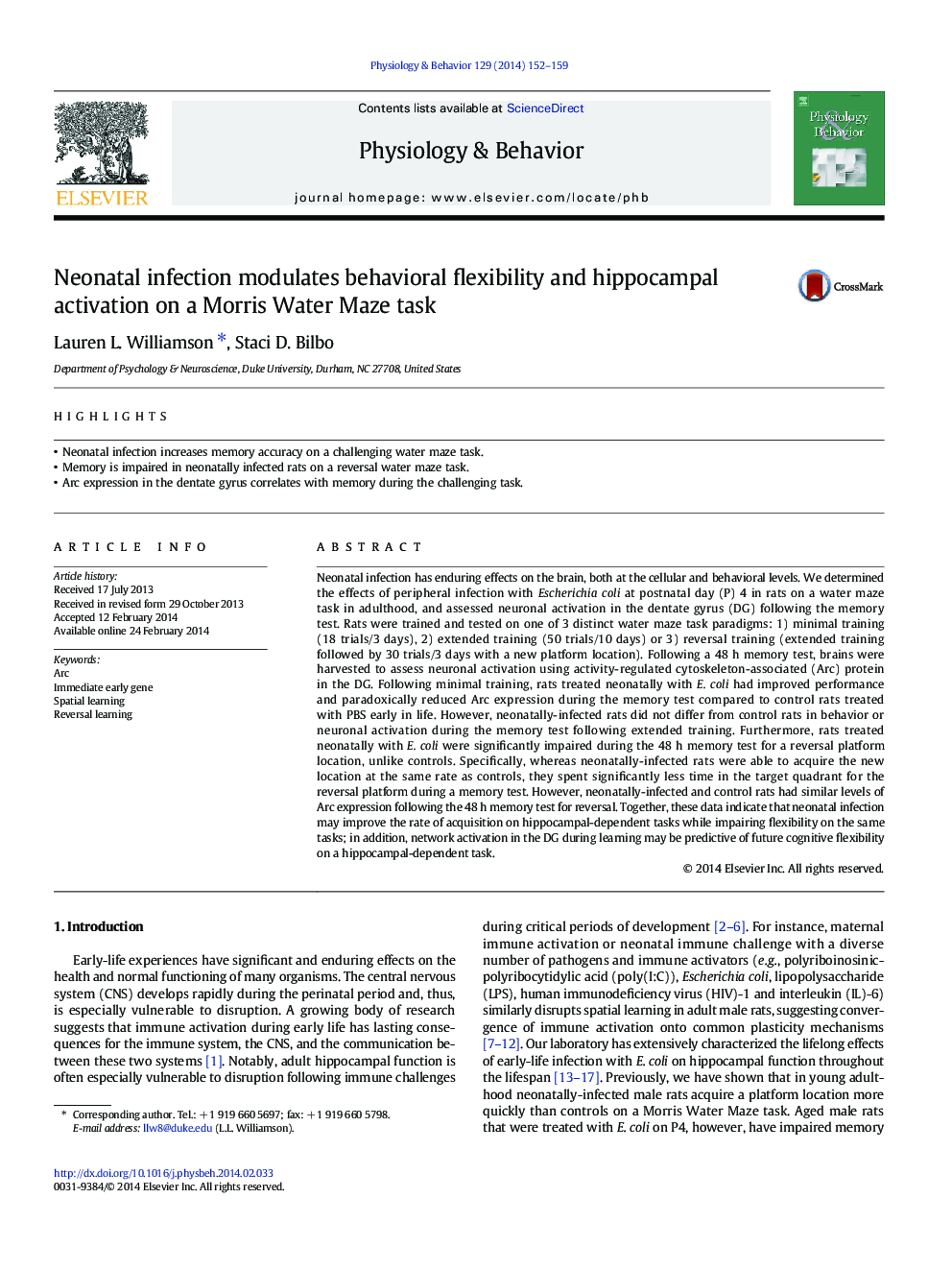| کد مقاله | کد نشریه | سال انتشار | مقاله انگلیسی | نسخه تمام متن |
|---|---|---|---|---|
| 5924282 | 1571188 | 2014 | 8 صفحه PDF | دانلود رایگان |
- Neonatal infection increases memory accuracy on a challenging water maze task.
- Memory is impaired in neonatally infected rats on a reversal water maze task.
- Arc expression in the dentate gyrus correlates with memory during the challenging task.
Neonatal infection has enduring effects on the brain, both at the cellular and behavioral levels. We determined the effects of peripheral infection with Escherichia coli at postnatal day (P) 4 in rats on a water maze task in adulthood, and assessed neuronal activation in the dentate gyrus (DG) following the memory test. Rats were trained and tested on one of 3 distinct water maze task paradigms: 1) minimal training (18 trials/3Â days), 2) extended training (50 trials/10Â days) or 3) reversal training (extended training followed by 30 trials/3Â days with a new platform location). Following a 48Â h memory test, brains were harvested to assess neuronal activation using activity-regulated cytoskeleton-associated (Arc) protein in the DG. Following minimal training, rats treated neonatally with E. coli had improved performance and paradoxically reduced Arc expression during the memory test compared to control rats treated with PBS early in life. However, neonatally-infected rats did not differ from control rats in behavior or neuronal activation during the memory test following extended training. Furthermore, rats treated neonatally with E. coli were significantly impaired during the 48Â h memory test for a reversal platform location, unlike controls. Specifically, whereas neonatally-infected rats were able to acquire the new location at the same rate as controls, they spent significantly less time in the target quadrant for the reversal platform during a memory test. However, neonatally-infected and control rats had similar levels of Arc expression following the 48Â h memory test for reversal. Together, these data indicate that neonatal infection may improve the rate of acquisition on hippocampal-dependent tasks while impairing flexibility on the same tasks; in addition, network activation in the DG during learning may be predictive of future cognitive flexibility on a hippocampal-dependent task.
Journal: Physiology & Behavior - Volume 129, 22 April 2014, Pages 152-159
